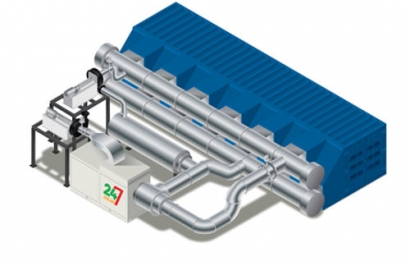
By adding a combustor, the battery can also produce even more dispatchable backup power, ideally using an emission-free fuel such as green hydrogen in the combustion process. This is also how the battery can provide spinning reserves. The innovative approach is designed to replace traditional diesel gensets at remote mines, as it provides 24/7 highly reliable operation with higher renewables penetration, significant fuel savings, and dramatically lower lifetime operating costs.
“In the mining industry, we see more and more off-grid microgrids that incorporate short-term energy storage systems”, explains Thomas Hillig, managing director of the microgrid consultancy THEnergy. “As the market is maturing, we see that miners are ready for the next step and increase the share of renewables – in the long run also 24/7-operations without gensets. This is what they need long-term storage for.”
In remote mining, reliability is critical to uninterrupted operations, and turbines are well known for their high reliability and low maintenance costs. “HeatStorE combines two inventions that are part of 247Solar’s Ultra-High Temperature Technology Platform, the 247Solar Heat2Power™ Turbine and the 247Solar Thermal Storage System”, points out Bruce Anderson, 247Solar’s CEO. “Combining these two proven technologies ensures that HeatStorE is also extremely reliable. We expect more than 20-year operations with little or no performance degradation.”
Considering that the new approach consists of a factory-made, shipping-size container filled with sand that is heated by resistance coils, its robustness is no surprise. Neither are its low O&M costs. The combination of robustness and life-cycle cost advantages will enable mining companies to implement new power plant concepts with fewer diesel engines – ultimately without any at all.
The new thermal battery can also be used in applications other than mining. In community microgrids, off-grid villages or island grids, HeatStorE is ideally suited to provide operational flexibility and resilience. The typical storage duration is in the range of 4-20 hours, which also allows for substantial grid-support and load shifting. Interestingly, the cost per kWh drops rapidly with duration. Behind the meter in industrial applications, the battery can also convert otherwise-wasted hot process exhaust to electricity.

